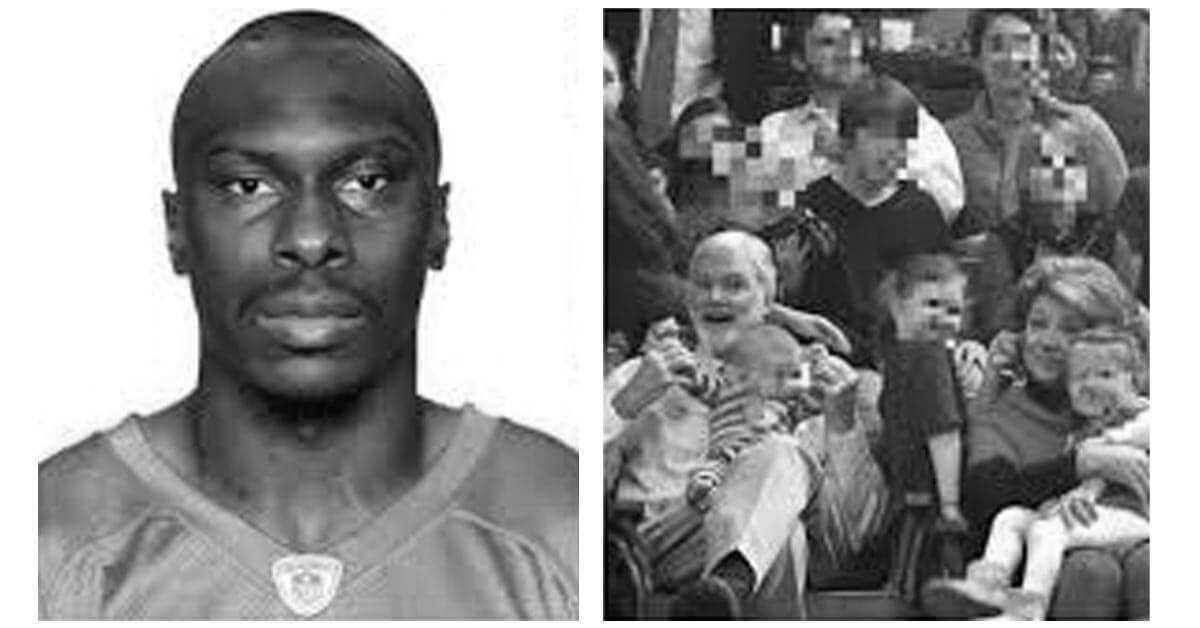On April 7, 2021, Rock Hill, South Carolina, was shaken by a horrific act of violence that would end the lives of six individuals and leave a community in mourning. Phillip Adams, a former NFL player, was responsible for the shooting spree that claimed the lives of Dr. Robert Lesslie, his wife Barbara, their two grandchildren, and two HVAC workers. The following day, Adams took his own life, adding a tragic conclusion to a shocking case.
Phillip Adams: A Promising Career Cut Short
Phillip Matthew Adams was born on July 20, 1988, in Rock Hill, South Carolina. Growing up, he was an accomplished athlete, excelling in football and basketball at Rock Hill High School. His high school football team won the state championship during his time there, showcasing his talent and dedication.
Adams continued his athletic career at South Carolina State University, where he played as a cornerback and on special teams from 2006 to 2009. Despite his promising college career, Adams left the university before graduating. In 2010, he was drafted into the NFL by the San Francisco 49ers in the 7th round.
During his time in the NFL, Adams played for several teams, including the Patriots, Raiders, Seahawks, Jets, and Falcons. His career, however, was marred by injuries. As a rookie, he suffered a severe ankle injury, one of the most gruesome of the season, which led to his release from the 49ers. Later, while with the Raiders, he experienced two concussions in just three games. Despite his struggles, Adams played a total of 78 games before retiring in 2015.
The Incident: A Day of Tragedy
On April 7, 2021, Adams went on a shooting spree in Rock Hill that resulted in the deaths of six people. The victims included Dr. Robert Lesslie, 70; his wife Barbara Lesslie, 69; their grandchildren Adah, 9, and Noah, 5; as well as HVAC workers James Lewis and Robert Shook. James Lewis, 38, was shot outside the Lesslie home, while Robert Shook, also 38, was found outside the home but later died from his injuries at the hospital.
Phillip Adams used both a .45-caliber weapon and a 9 mm during the attack. After the shooting, Adams engaged in a standoff with police at his home. The standoff ended tragically when Adams took his own life with a self-inflicted gunshot wound to the head.
The Aftermath: CTE and Mental Health
An autopsy revealed that Adams was suffering from chronic traumatic encephalopathy (CTE), a neurodegenerative disease associated with repeated head trauma. CTE can cause severe behavioral and cognitive problems, including mood swings, memory loss, and aggression. Adams’s case was particularly severe, and his father believed it may have contributed to his violent actions.
CTE has been diagnosed in 345 NFL players posthumously, but Adams’s case was not included in a study conducted by the NFL, as he did not retire before 2014. Those who knew Adams were stunned by his actions. His first-grade teacher, who chose to remain anonymous, described him as a kind-hearted and fun-loving student, far removed from the person responsible for the killings.
Reflections from Friends and Family
Adams’s long-time agent, Scott Casterline, expressed disbelief over the violence. He described Adams as a hardworking and quiet individual who was well-liked by those around him. Casterline and Kevin Smith, who had trained Adams, confirmed that he had opened a smoothie shop and did not use drugs or alcohol. They noted that Adams had become somewhat of a recluse, even isolating himself during football seasons, but they were unaware of the extent of his mental health struggles.
Phillip’s sister revealed that his mental health had deteriorated rapidly, changing his demeanor significantly. She confirmed that he was not inherently violent but had developed a temper.
The Victims: Lives Remembered
The victims of Phillip Adams’s rampage were deeply cherished in their community. Dr. Robert Lesslie and his wife Barbara were known for their contributions to both their church and their community. Dr. Lesslie, a Renaissance man, was a physician who wrote medical articles and was involved in horticulture and gardening. He was also known for his unique tradition of waking campers at Camp Joy with his bagpipes, a skill he had learned as an adult. Barbara, known as Ms. B, was beloved for her humor and her involvement in comedic skits and youth work.
Adah Lesslie, the 9-year-old granddaughter, was remembered for her intelligence and love of reading, while Noah was known for his curiosity and energy. The memorial for the Lesslies featured a touching tribute to Adah’s musical talents, including a song she had written.
The Community Response
In the wake of the tragedy, the community was left to grapple with the loss and seek solace. The surviving Lesslie family expressed their commitment to forgiveness and healing. The memorial for the Lesslies included a call for donations of books and canned goods in honor of their dedication to service.
Phillip Adams’s story is a poignant reminder of the complex interplay between mental health and the effects of repeated trauma. The tragedy underscores the need for greater awareness and support for individuals affected by conditions like CTE, and the profound impact such events have on communities.





Leave a Comment